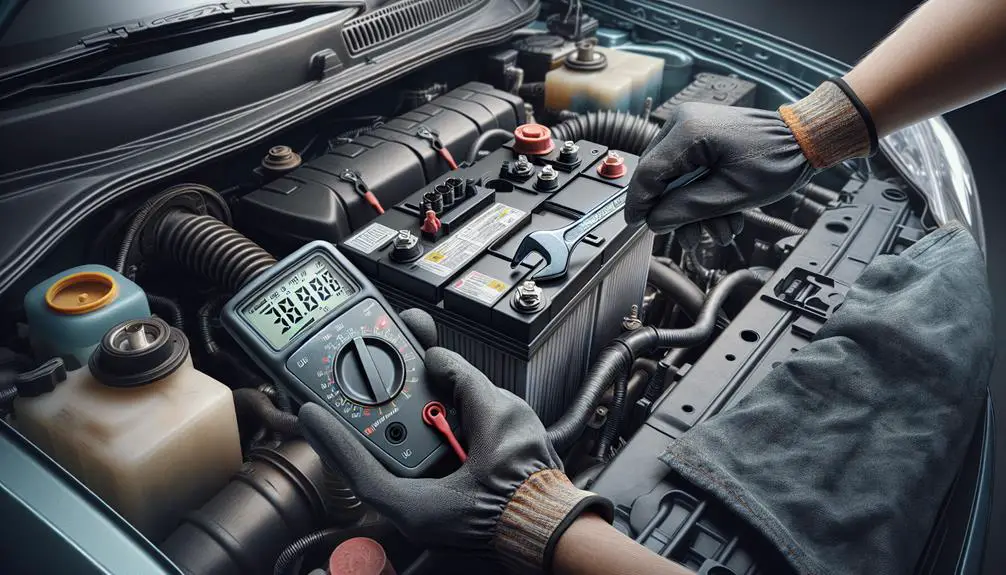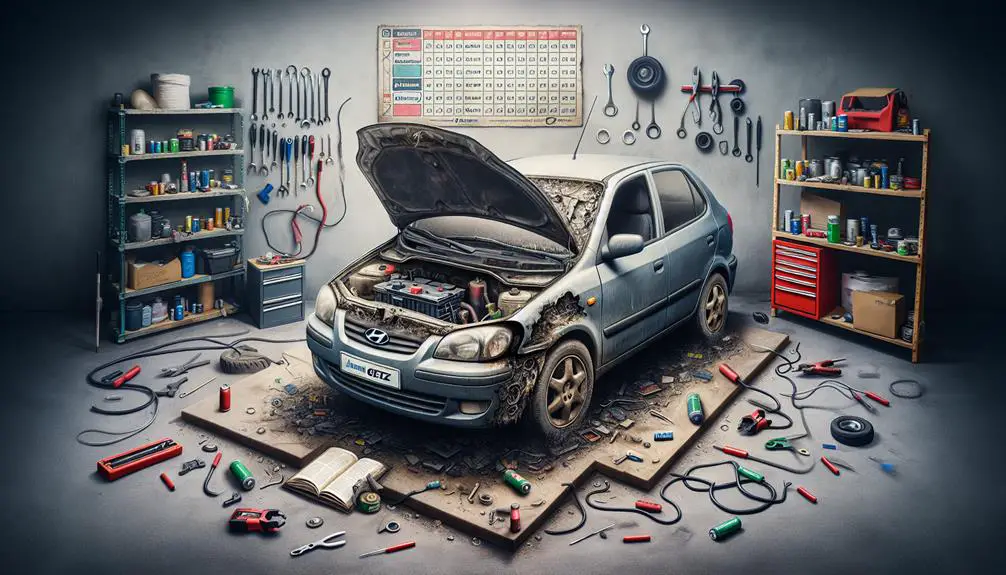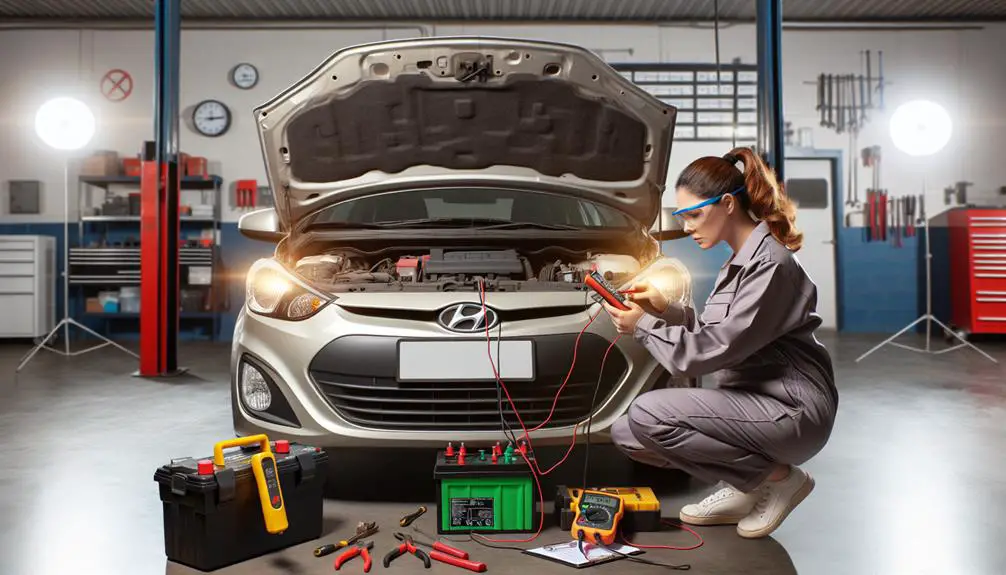It is important to regularly check the alternator, battery age, and electrical system of your vehicle. The alternator is responsible for charging the battery and powering the electrical system while the battery provides the necessary energy to start the engine. Over time, both the alternator and battery can wear out, leading to potential issues with starting the vehicle or running electrical components. By inspecting these components and the overall electrical system, you can ensure optimal performance and reliability of your vehicle.
Regular maintenance and timely replacements can help prevent unexpected breakdowns and costly repairs. If you notice any signs of a failing alternator or battery, such as dimming headlights, a dead battery, or difficulty starting the engine, it is crucial to address these issues promptly. A professional inspection by a qualified mechanic can provide valuable insights into the condition of these components and help you maintain the overall health of your vehicle.
Checking the Battery Connections

First, check that the Hyundai Getz battery terminals are clean and tight. Dirty or loose connections can stop the car from starting by blocking the electrical current. Inspect both positive and negative terminals. If there's corrosion, clean it with baking soda and water, wearing safety gloves. Use a wire brush to remove dirt.
Next, look at the cables connected to the terminals. They should be in good shape, with no frays or cuts. If the cables are worn or damaged, they need replacing. The cables' condition is as important as the terminals.
Make sure the battery is firmly in place. A moving battery can cause loose connections or damage. A bracket should hold the battery. Fix it if it's missing or loose.
Inspecting the Alternator
First, make sure your Hyundai Getz's battery connections are tight and clean. Next, check the alternator, which is essential for charging the battery. The alternator turns mechanical energy into electrical energy, keeping the battery charged while the engine is on. If the alternator stops working, the battery won't charge, causing electrical problems and possibly leaving you stranded.
To inspect the alternator, follow these steps:
- Examine the Alternator Belt: Look for any wear like cracks or frays. A belt that's loose or damaged can stop the alternator from working properly. It needs to be tight enough to spin the alternator correctly.
- Check Electrical Connections: Ensure the alternator's connections are tight and not corroded. A loose connection can stop charging, and corrosion can cause resistance, leading to charging issues.
- Listen for Noises: Turn on the engine and listen for any odd noises from the alternator, like squealing or grinding. These sounds can mean a failing bearing or pulley in the alternator, which requires quick action.
- Measure the Alternator's Output: Use a multimeter to check the alternator's output. With the multimeter set to DC voltage, measure the battery voltage with the engine off and then on. A working alternator should give out about 13.5 to 14.5 volts with the engine running.
Battery Age and Health

Your Hyundai Getz's battery might be old. Check its health if it's over three years. Old batteries can make your car hard to start or affect electrical parts.
To inspect, look for corrosion (white or green stuff) on battery terminals, and check if the battery looks swollen. Clean terminals if corroded.
Use a multimeter to measure battery voltage. A good battery shows 12.6 volts when the car is off. Below 12.4 volts means it's discharging, and under 12 volts could mean it's failing.
Electrical System Diagnostics
After checking the battery health of your Hyundai Getz, it's important to also examine the whole electrical system. This helps to make sure the issue isn't just the battery but could be other parts of the car's electrical system. The goal is to fully understand what's happening with your car to avoid future issues.
Here are steps to find potential problems in the Hyundai Getz's electrical system:
- Check the Alternator: The alternator charges the battery when the car is running. If it's not working well, the battery won't charge properly. Listen for strange noises and look for damage. Use a multimeter to see if it's giving the right voltage.
- Look at the Starter Motor: A bad starter can use too much power, leaving the battery with less. If the engine has trouble starting, the starter might be the problem.
- Inspect Electrical Connections: Bad or loose connections can block electricity flow. Check all cables and terminals, not just those connected to the battery. Make sure they're clean, secure, and in good shape.
- Search for Parasitic Drains: Some devices or wiring issues can use power even when the car is off, draining the battery. Use a multimeter to measure current and find any unexpected drains.
Charging System Maintenance

Maintain your Hyundai Getz's charging system to prevent unexpected failures. Here are key steps:
- Check the battery yearly and replace every 3-5 years to avoid straining the alternator.
- Monitor the alternator for signs of failure like dimming lights or a dead battery. Replace if needed.
- Inspect the belt driving the alternator for wear and replace if necessary to ensure effective charging.
- Keep connections clean and tight to maintain efficient electricity flow.
These steps help avoid breakdowns and costly repairs.
Conclusion
You've just learned how to fix charging problems in your Hyundai Getz.
First, check if the battery connections are tight and clean.
Don't forget about the alternator; it's important because it charges the battery.
The battery's age and condition really matter for how well it works.
If there are deeper problems, testing the electrical system can find them.
Keeping the charging system in good shape helps avoid issues later.
With these steps, you're ready to keep your Getz running well.